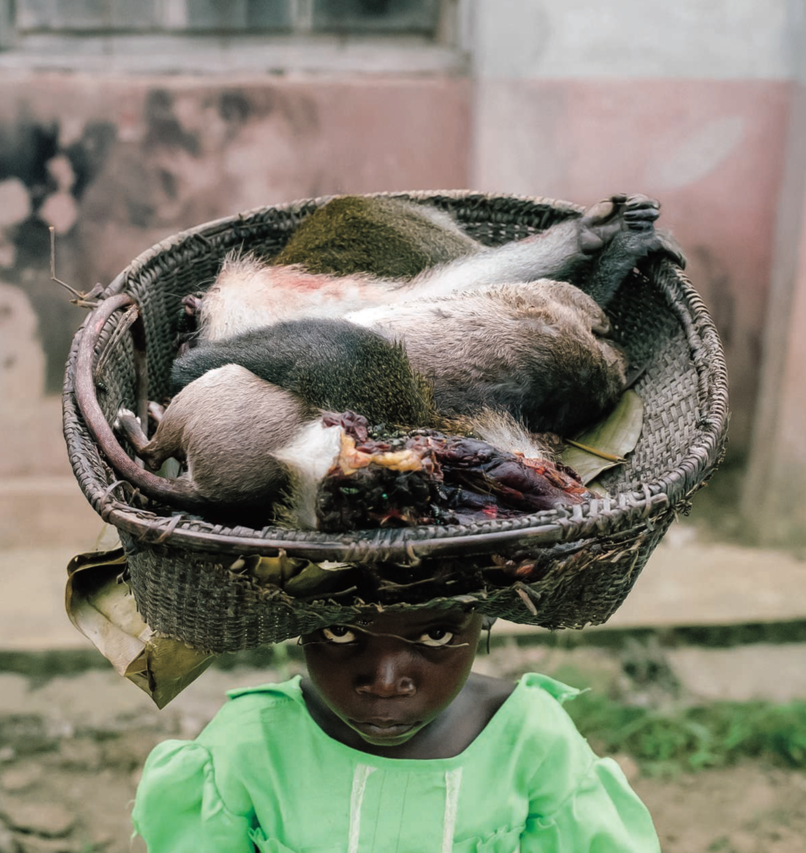By Kaitlyn Gaynor, PhD Candidate

In a recent paper in Science, Benítez-López and colleagues synthesize data from around the tropics to distill the impacts of bushmeat hunting into a striking figure: bird and mammal populations decline by 58% and 83% (respectively) as a result of hunting. But what does this number mean for wild animals, their ecosystems, and the human populations that rely on their meat?
As an interdisciplinary research group, we in the Brashares lab embrace and explore the complexity of social-ecological dynamics. Bushmeat hunting and consumption are at the center of a coupled human-natural system in which the health and security of people and ecosystems are tightly linked.
In an accompanying perspective piece in Science, Justin and I bring this interdisciplinary lens to the Benítez-López study to unpack some of the history, drivers, and consequences of hunting and associated defaunation.